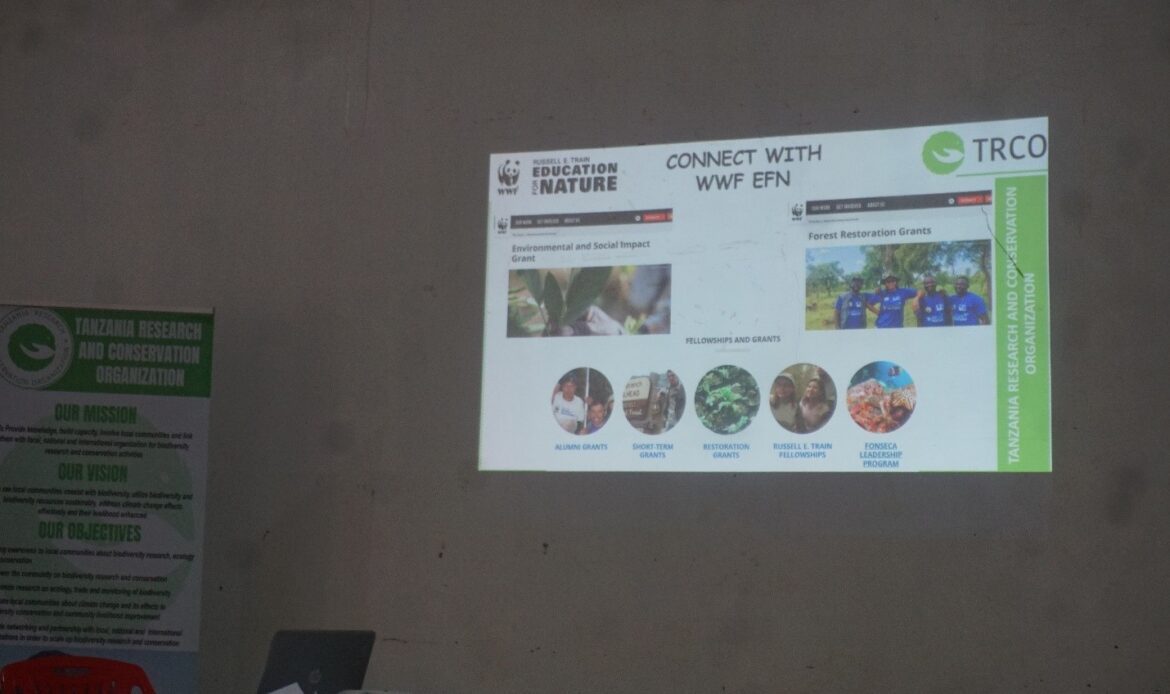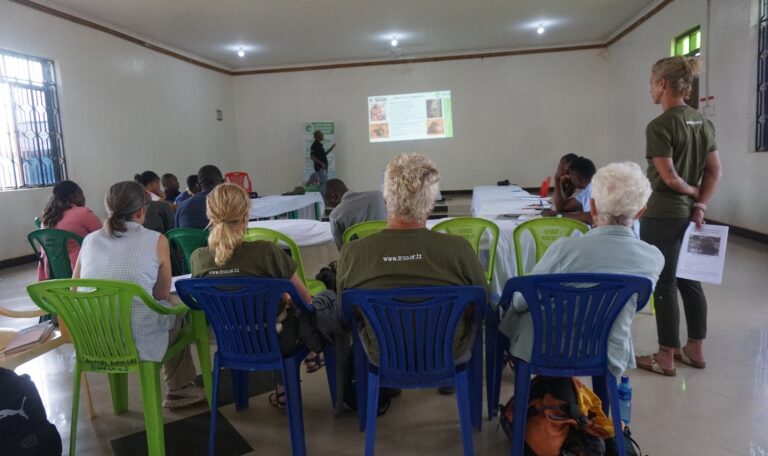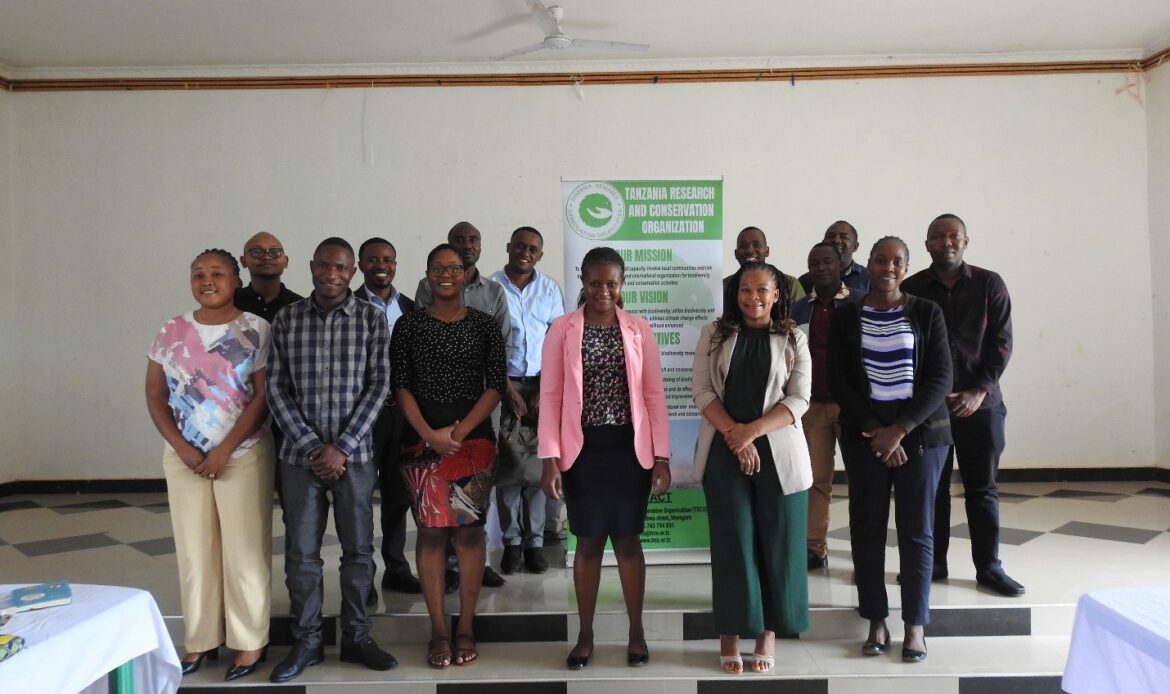Pangolins are among the most threatened species on Earth, primarily due to the high demand for their body parts, including scales, in illegal wildlife trade. In western Tanzania, a region rich with biodiversity, all three pangolin species—giant pangolin, Temminck’s pangolin, and white-bellied pangolin—have historically been found. Unfortunately, this region, encompassing Geita and Kagera, is now a hotspot for pangolin trafficking and habitat threats.
Recognizing the urgent need to address this crisis, Tanzania Research and Conservation Organization (TRCO) secured funding from the WWF Environmental and Social Impact Assessment Grant to conduct research to understanding the local knowledge, trade dynamics, occurrence, and distribution of pangolins. The findings revealed that western Tanzania serves as a key habitat for pangolins, but it is also a critical area for illegal trade in pangolin scales and other body parts.
Armed with these insights, TRCO received additional funding to tackle some of these threats faced by pangolins. This grant enabled us to provide education and raise awareness among local leaders and conservation practitioners, empowering them to take action against poaching and trafficking.
As part of our efforts, TRCO organized a one-day workshop in Biharamulo, inviting key stakeholders from across the region. Participants included ecologists and protection officers from Burigi Chato National Park, Ibanda-Kyerwa National Park, Rumanyika-Karagwe National Park, and Minziro Nature Forest Reserve, as well as District Game Officers (DGOs) from Missenyi, Karagwe, Ngara, Biharamulo, and Bukoba.

The training focused on equipping participants with essential skills and knowledge for the effective handling, releasing, and monitoring of pangolins. Key topics included:
- Reporting Protocols: How to accurately report pangolin sightings and incidents to conservation authorities.
- First Aid for Injured Pangolins: Practical guidance on providing immediate care to injured pangolins before transferring them to appropriate facilities.
- Pangolin Ecology and Biology: In-depth insights into the behavior, habitat, and life cycle of pangolins to enhance understanding and conservation efforts.
- Technology Integration: Training on using the Pangolin Sighting Application to gather and document data on pangolin occurrences efficiently.
Additionally, participants shared valuable insights and contributed to refining the Standard Operating Procedures (SOPs) for pangolin conservation. These contributions will play a crucial role in developing a comprehensive national action plan for the handling, releasing, and monitoring of pangolins in Tanzania.
This workshop was a vital step in building a network of conservation advocates in western Tanzania. By sharing best practices and fostering partnerships, we are strengthening efforts to protect pangolins and their habitats.

We extend our heartfelt gratitude to the WWF Environmental and Social Impact Assessment Grant for making this initiative possible. Their support has enabled us to conduct impactful research and empower conservation practitioners and local communities to safeguard pangolin species in western Tanzania.
However, there is still much work to be done. To ensure the survival of pangolins in western Tanzania, we need to:
- Conduct further research to monitor pangolin populations and their habitats in Mahale and Minziro.
- Expand awareness campaigns to reach more communities, schools and leaders.
- Empower local populations with sustainable livelihood alternatives that reduce reliance on wildlife exploitation and destruction of pangolin habitats.


